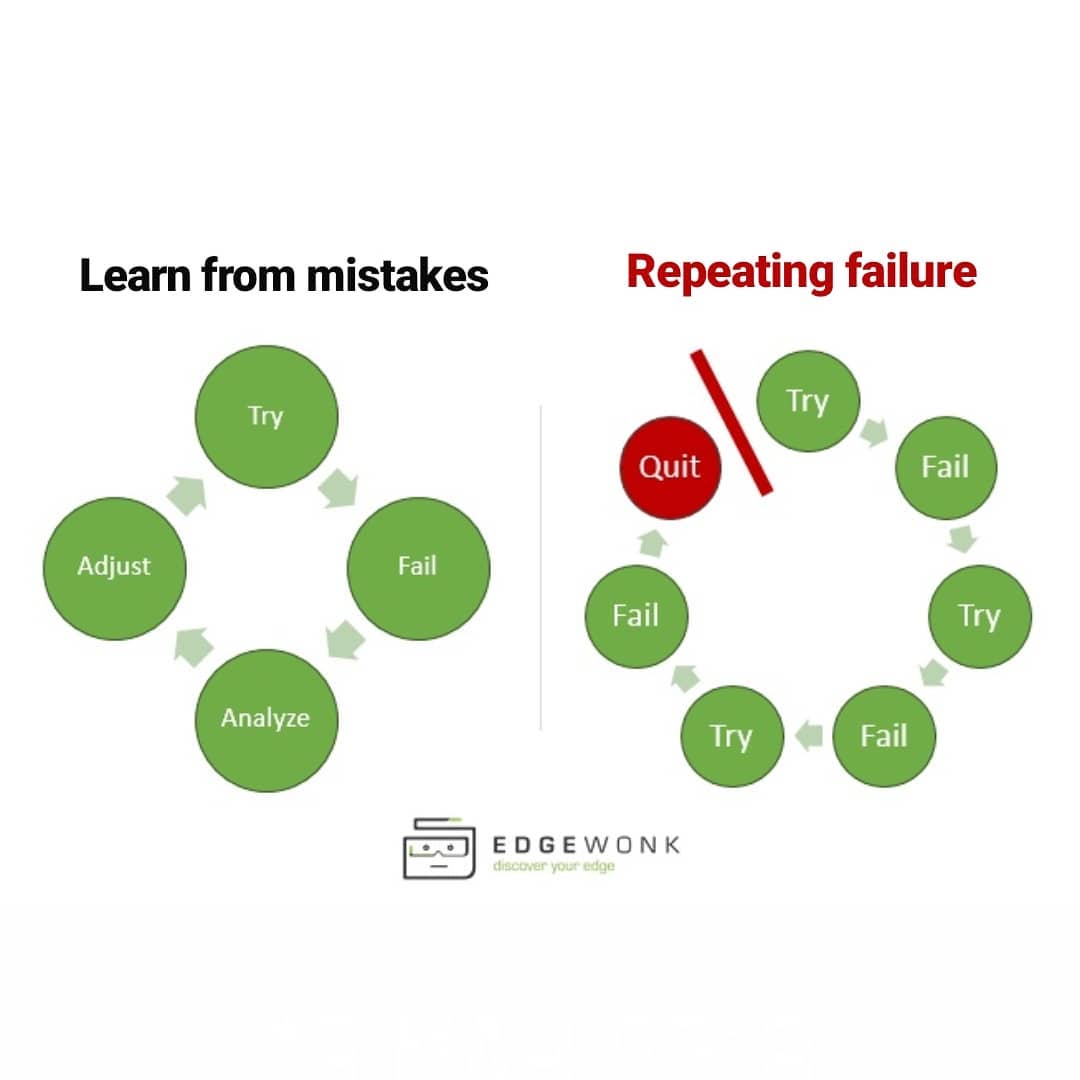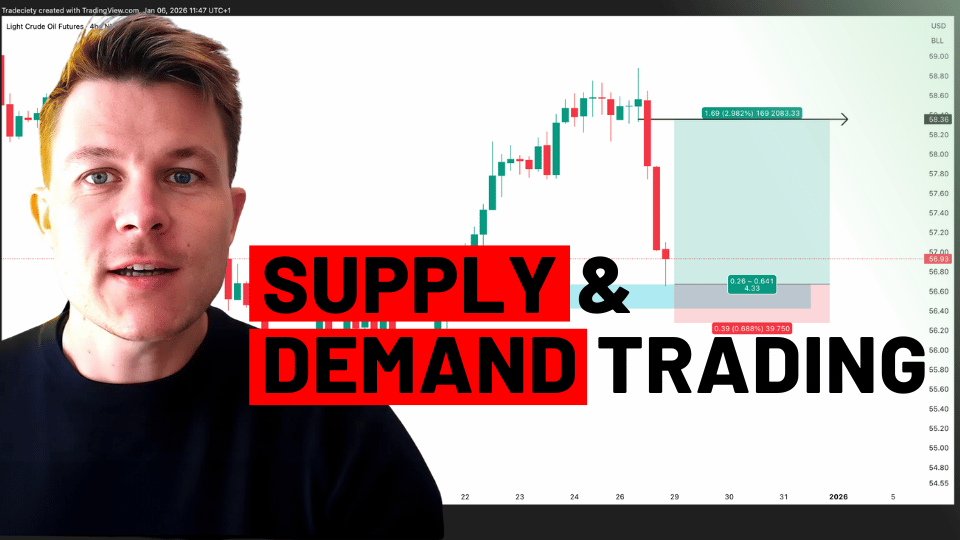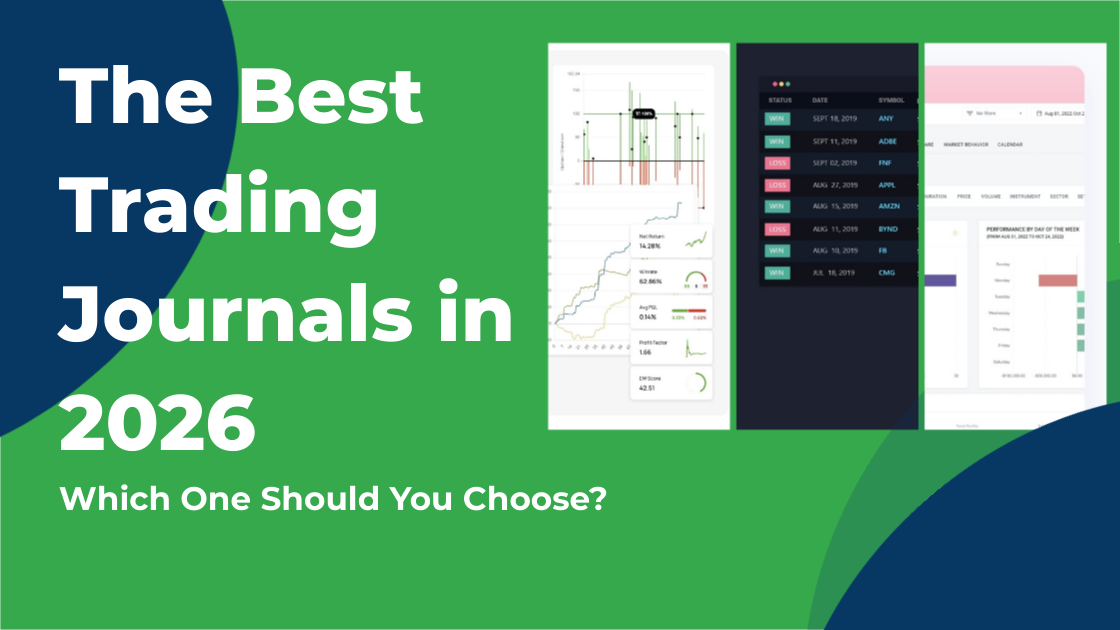Supply and Demand Trading in 2026
We have been trading supply and demand strategies for over ten years, and they have stood the test of time remarkably well. Supply and demand is...
3 min read
Rolf
Jul 24, 2019 7:33:20 AM

“If you personalize losses, you can’t trade.”
– Bruce Kovner
To many traders, Bruce Kovner is a world-renowned hedge fund manager who has earned billions of dollars over the course of his career. But after twenty-eight years as the founder and chairman of Caxton Associates, he’s still proud of the way that he handled his early losses:
“You have to be willing to make mistakes regularly; there is nothing wrong with it,” Kovner explained in an in-depth interview for Market Wizards.
“Michael [Marcus, the legendary trader from Commodities Corp.] taught me about making your best judgment, being wrong, making your next best judgment, being wrong, making your third best judgment, and then doubling your money. The emotional burden of trading is substantial; on any given day, I could lose millions of dollars. If you personalize losses, you can’t trade.”
Like Kovner, Marcus, and the thousands of traders who have built long-term careers on the stock market, you are going to have trading days that will cripple your bank account. In an industry where 80% of day traders quit within the first two years, the most important quality that you can develop is the ability to learn from a losing trade.[1]
Here are four tips for recovering from a serious loss, based on trading psychology, mindset coaching, and the power of perseverance:
For decades, psychologists have studied the mental and emotional toll that losses can have on investors. Their research has consistently shown that denial, emotional suppression, and blame can lead to greater losses in the market; traders who learn to accept their failings and move on are better at coping with stress, maintaining their edge, and bouncing back from bad trades.
By taking responsibility for your actions, you can reflect on the decisions that led to your loss without getting overwhelmed by your past mistakes.[2]
Avoiding responsibility is done as a protection mechanism because you always give yourself a way out and you do not want to admit that you are doing something wrong. However, if you do not accept that you are the one responsible for the loss, you also do not see that YOU are the one who can turn it around.
Taking responsibility requites brutal honesty with yourself and you need to face the fact that you screwed up. But at the same time, you can also feel the power that comes with knowing that it is completely in your hand to turn your trading performance around. Avoid the victim mentality.
The circumstances that led to your loss may come back to haunt you if you don’t address them now! The last thing that you want to do is to repeat a mistake that you didn’t fully understand; take a few minutes to evaluate the beliefs, opinions, and forecasts that influenced your decision, and identify three things that you could have done to avoid the loss in the first place.
Do you remember your last 10 trades? The answer is probably no – which is normal. However, it highlights the importance of having a solid review and journaling routine.
Edgewonk is your best bet when it comes to having a real trading journal. Only once you actually review what you have been doing during your trading, you can find patterns in your behavior and then make adjustments accordingly. A trader who does not review his trades is doomed to repeat the same mistakes over and over.
At this point, the best thing that you can do to fast-track the recovery process is to step away from your computer. Take some time to focus on an activity that is not connected to your work; studies have shown that adults in stressful professional environments have used exercise, yoga, and meditation to let go of past problems and focus on the present.[3]
Your muscles do not grow while you are at the gym, but only during passive recovery. A football team does not become better by playing, but during practice, review and study their games.
I talked about this concept of rest and trading less to become better traders here:
The most important thing is that you do not engage in system hopping while experiencing losses. We talked about why you should not abandon your system during a drawdown before.
You need to make sure that you internalize that trading is like any other job and that it takes time to learn the skill. System hopping means certain death for any trader. Understand that there is no Holy Grail system out there and that it comes down to YOU making the system work and YOU becoming the professional trader that can emotionally handle the trading challenges.
Next time you hit a losing streak, do not change your system and do not make any alternations. Instead, analyze trade by trade and look for similarities. Often you will be able to spot patterns in your trading. I have seen it dozens of times that a trader usually does not do everything completely wrong and the majority of the losses can be summarized by a few negative patterns. Once you track and analyze your trading, you will be able to find out what it takes to turn your trading around.
Think of your loss as a lesson in disguise: you’ve taken the time to reevaluate your trading strategy, make adjustments, and gain new insight into the stock market. As David Sikhosana, the author of Time Value of Money: Timing Income, said, “Losses are necessary, as long as they are associated with a technique to help you learn from them.”
[1]Barber, B. M., Lee, Y., Liu, Y., & Odean, T. (2014). Do Day Traders Rationally Learn About Their Ability? SSRN Electronic Journal. doi:10.2139/ssrn.2535636
[3]Bullock, B. (2018, May 30). How Mindfulness Beats Job Stress and Burnout. Retrieved from https://www.mindful.org/mindfulness-beats-job-stress-burnout/

We have been trading supply and demand strategies for over ten years, and they have stood the test of time remarkably well. Supply and demand is...

3 min read
Choosing the right trading journal is essential for traders wanting to analyze performance, refine strategies, and improve consistency. In this...

3 min read
“95% of all traders fail” is the most commonly used trading related statistic around the internet. But no research paper exists that proves this...